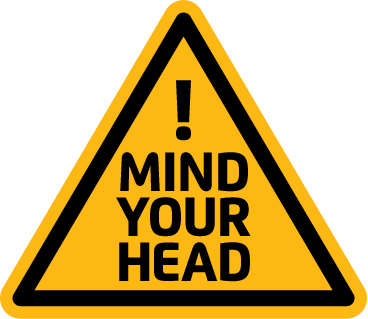
Mental health is a workplace issue – a mentally healthy workplace takes positive steps to prevent harm by identifying mental health hazards, managing harm from an early stage, and supporting recovery, just like we would with physical hazards at work.
Under the WHS Act (or the OHS Act in Victoria), employers must provide and maintain a working environment for their people that is safe and without risks to mental health. Employers also have an obligation to consult with employees through their unions on matters that affect their mental health and safety. If you need assistance with psychosocial hazards in your workplace, you can contact your union.
Psychosocial Hazards
Workplace Mental Health Hazards are referred to as Psychosocial Hazards. The term Psychosocial combines “psychological” (mind and emotions) and “social” (relationships and environment). In the workplace, psychosocial hazards are things that can affect your mental health and well-being due to the way work is organised, the environment, and how people interact.
Australia has a Model Code of Practice for managing psychosocial hazards at work. This code provides guidelines on how to create a safe and healthy work environment by addressing factors that can impact mental health. However, each state and territory in Australia has its own specific rules and regulations, meaning they may have additional requirements or different ways of implementing these guidelines. Mind Your Head has also produced our own worker-focused National Guidance Material which you can find in your Resources section.
There are currently 14 Psychosocial Hazards that are identified and recognised under Australia’s Model and it is important that workers, their representatives and their employers understand them. Please click here for information on these.
Employer Responsibilities
Under section 19 of the WHS Act (or section 21(1) of the OHS Act in Victoria) employers have a duty of care. They must provide and maintain a working environment that is safe and without risks to health, so far as is reasonably practicable. The term health includes both physical and psychological health.
Employers must systematically and comprehensively:
• identify work-related hazards and risks;
• assess risks (where the degree of risk and suitable controls are not already known);
• implement effective control measures to eliminate hazards or minimise risks. The main focus on the good design and effective management of work, creating safe systems of work and ensuring appropriate communication and behaviour; and
• consult effectively with your workers, their representatives and others where required.
An Employer has the primary duty to ensure, so far as is reasonably practicable, workers and other people are not exposed to psychological health and safety risks arising from the business or undertaking. This duty requires employers to ‘manage’ risks to psychological health and safety arising from the business or undertaking by eliminating exposure to psychosocial hazards so far as is reasonably practicable. If it is not reasonably practicable to eliminate them, you must then minimise those risks so far as is reasonably practicable.
Employees have a duty to take reasonable care for their own health and safety and to not adversely affect the health and safety of other persons. Workers must comply with reasonable instructions, as far as they are reasonably able, and co-operate with reasonable health and safety policies or procedures that have been notified to workers.
Pursuant to section 18 of the WHS Act (or section 20 of the OHS Act in Victoria), regard must be had to the following matters in determining what is (or was at a particular time) reasonably practicable in relation to ensuring health and safety:
a. the likelihood of the hazard or risk concerned eventuating;
b. the degree of harm that would result if the hazard or risk eventuated;
c. what the person concerned knows, or ought reasonably to know, about the hazard or risk and any ways of eliminating or reducing the hazard or risk;
d. the availability and suitability of ways to eliminate or reduce the hazard or risk; and
e. the cost of eliminating or reducing the hazard or risk.
For more information, please see our National Guidance Material available here.
If you require urgent mental health support please contact these services for 24/7 crisis support:
Lifeline: 13 11 14
www.lifeline.org.au
Beyond Blue: 1300 224 636
www.beyondblue.org.au
